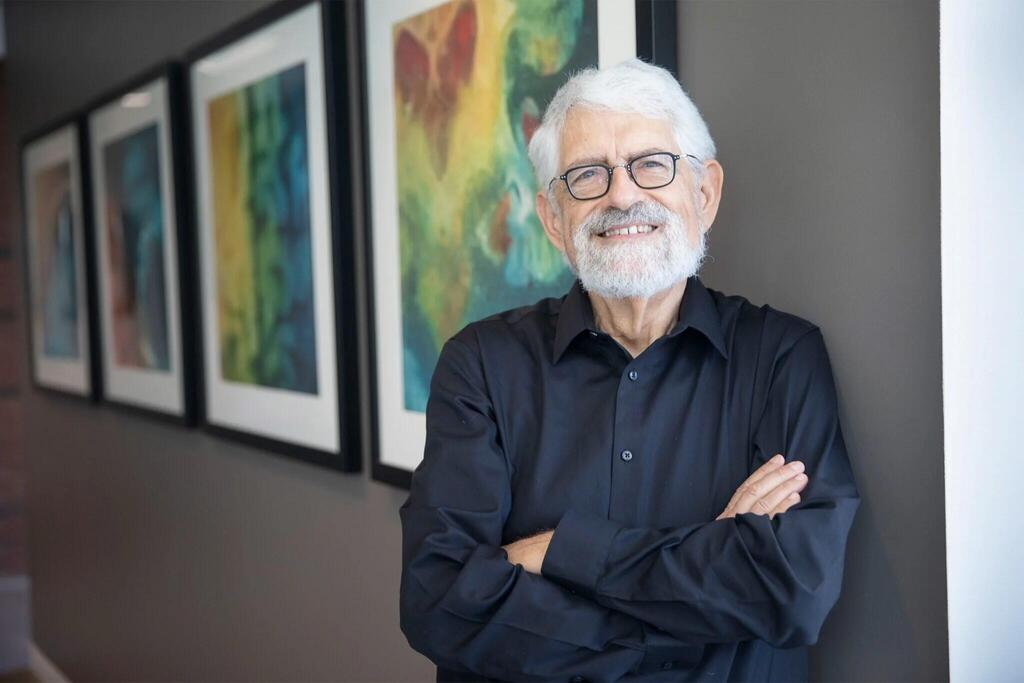Getting your Trinity Audio player ready...
Israeli neuroscientist Haim Sompolinsky, a professor at Harvard University's Department of Molecular and Cellular Biology and Department of Physics, has been awarded the Lundbeck Foundation's prestigious Brain Prize for his groundbreaking contributions to computational and theoretical neuroscience. The prize, considered the highest honor in neuroscience research, is shared this year by Larry Abbott of Columbia University and Terrence Sejnowski of the Salk Institute.
Read more:
According to the Lundbeck Foundation in Denmark, which awards the prize, Sompolinsky, Abbott and Sejnowski have played pivotal roles in uncovering fundamental principles governing the structure, function, cognition and behavior of the brain. Their work has involved applying innovative approaches from physics, mathematics and statistics to study the complexities of the brain and develop essential tools for analyzing intricate data sets collected by modern experimental neuroscientists.
Richard Morris, chair of the selection committee, emphasizes the indispensable role of computational and theoretical neuroscience in advancing our understanding of the brain. "It is impossible to imagine modern brain sciences without the concomitant development of computational and theoretical neuroscience. The three scientists have applied novel and sophisticated approaches from physics, mathematics and statistics to study the brain. They have developed vital tools for the analysis of highly complex data sets acquired by modern-day experimental neuroscientists," he said.
Sompolinsky's research focuses on unraveling the fundamental principles of brain organization, dynamics and function across multiple scales, from molecular to cellular and circuit levels. He has developed novel theoretical approaches rooted in statistical physics, as well as the physics of dynamical and stochastic systems. His research areas encompass cortical dynamics, sensory processing, motor control, neuronal population coding, memory and neural learning.
The Brain Prize recognizes the immense contributions of these scientists in bridging the gap between physics, neuroscience and our understanding of human cognition and behavior. Their work has paved the way for significant advancements in the field of neuroscience and has provided crucial insights into the complexities of the brain and its mechanisms.
An esteemed researcher and director of the Swartz Program in Theoretical Neuroscience at Harvard's Center for Brain Science, Sompolinsky has dedicated his career to advancing the field of computational neuroscience. As an associate faculty member with the Kempner Institute for the Study of Natural and Artificial Intelligence, he has made significant contributions to the understanding of neural processes by developing innovative theoretical approaches.
His work has been instrumental in establishing and theoretically elucidating models of neuronal circuit function. His research has provided valuable insights into the intricate dynamics of circuits involved in long-term memory and recall.
"The brain is an intrinsically dynamic organ – that’s what’s fascinating about it," he said. "Think about sleep, dreaming, wandering thoughts, creative actions in arts or sciences, problem-solving. The theory gives us a framework for conceptualizing, quantifying and studying the link between circuit dynamics and these types of functionalities in the brain."
"There are few who lay the foundation for a growing field, but that’s what Sompolinsky has done for theoretical neuroscience," says Verkatesh Murthy, the Paul J. Finnegan Family Director of the Center for Brain Science. "He brought approaches from physics to understand various ways a network of neurons can interact, which has led to an understanding of how brains can store and retrieve memories, how a brain knows which direction its head is pointing, and how a proper balance between excitatory and inhibitory neurons can be maintained in our brains."
"Now, he is bringing his customary rigorous physics approaches – and his unbounded energy – to bear on the many exciting puzzles in high-level animal cognition, as well as to the startlingly sophisticated AI models such as ChatGPT. His presence at Harvard has been transformative to many communities here," Murthy said.
Prior to his appointment at Harvard in 2022, Sompolinsky had a distinguished career as a professor at Hebrew University in Jerusalem, where he now holds the title of professor emeritus. He earned his Doctorate from Bar-Ilan University in Israel. In 1982, the professor embarked on his journey at Harvard as a physics postdoctoral researcher, collaborating with Professor Bert Halperin.
The Brain Prize 2024, renowned as the most esteemed accolade in neuroscience research, has awarded a shared prize of €1.3 million to the three recipients, who will receive the award from Danish King Frederik André Henrik Christian.



